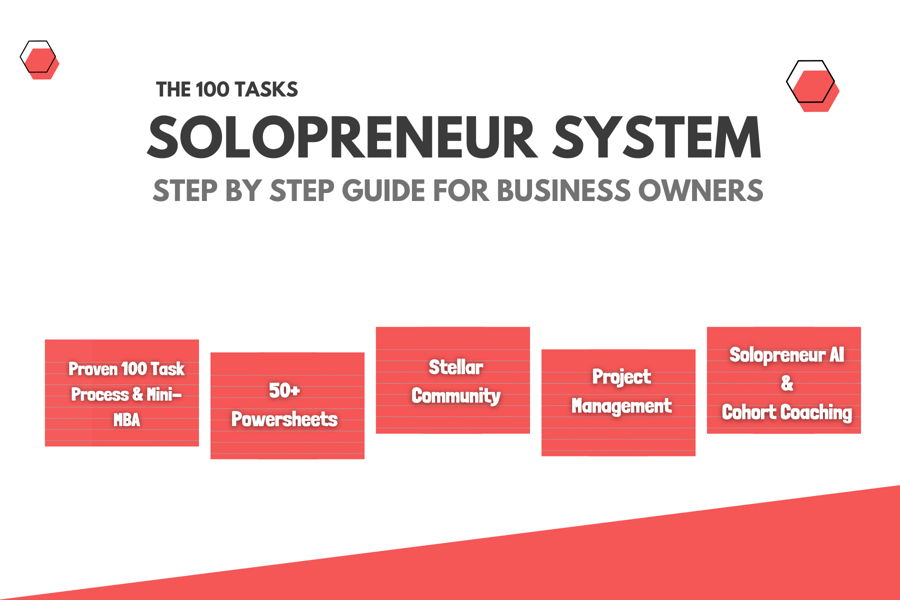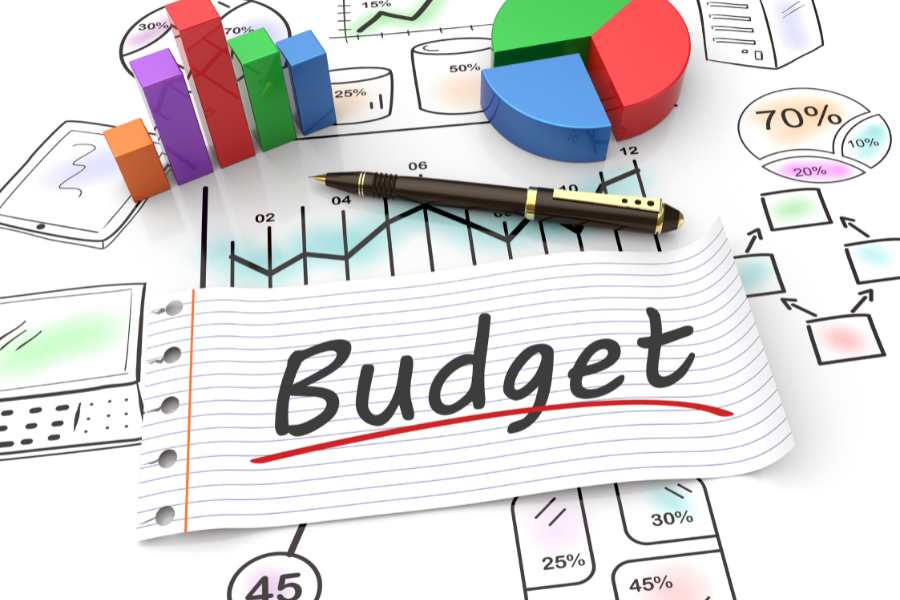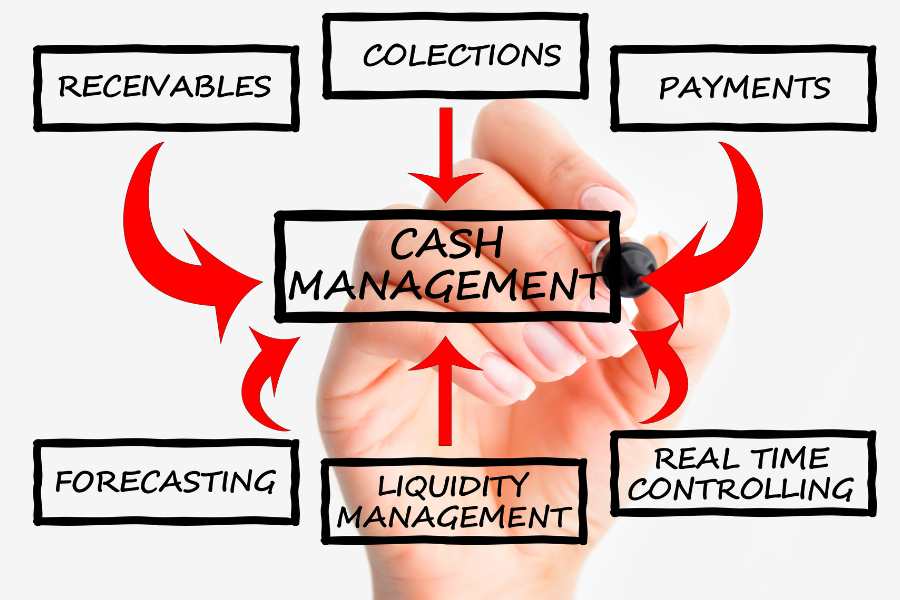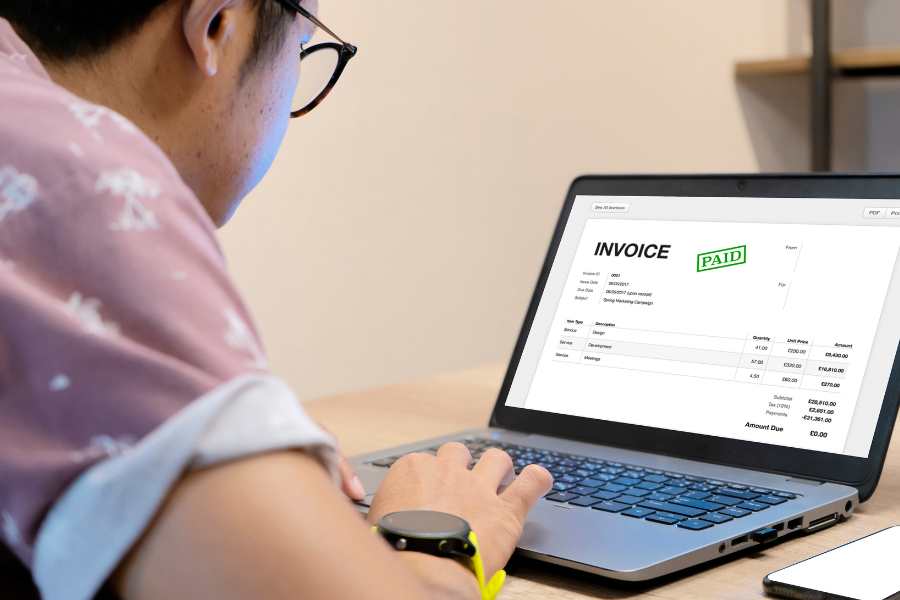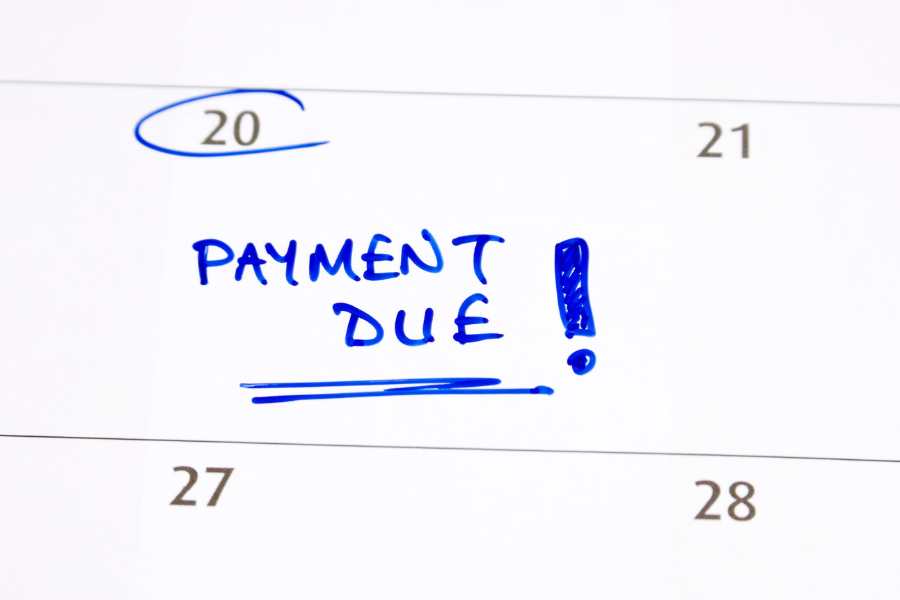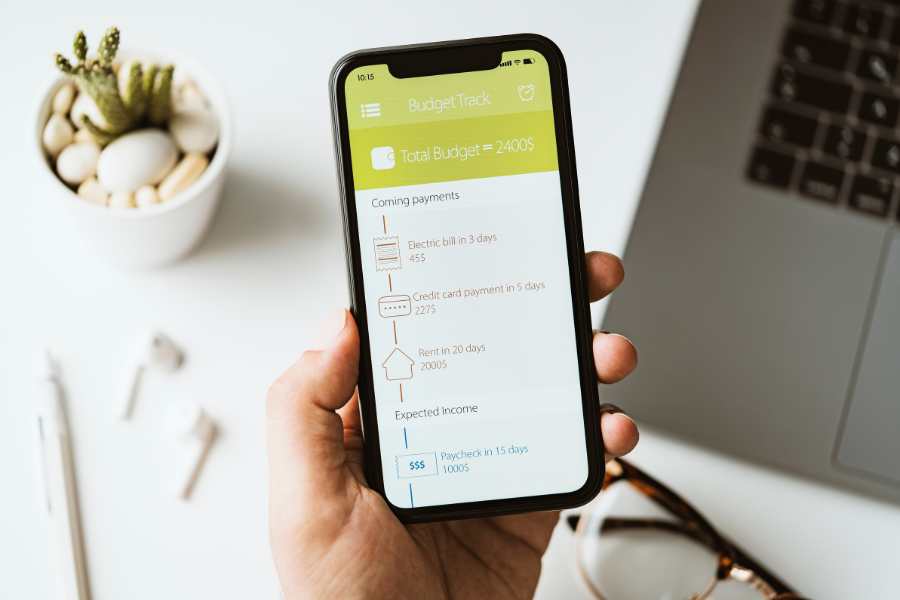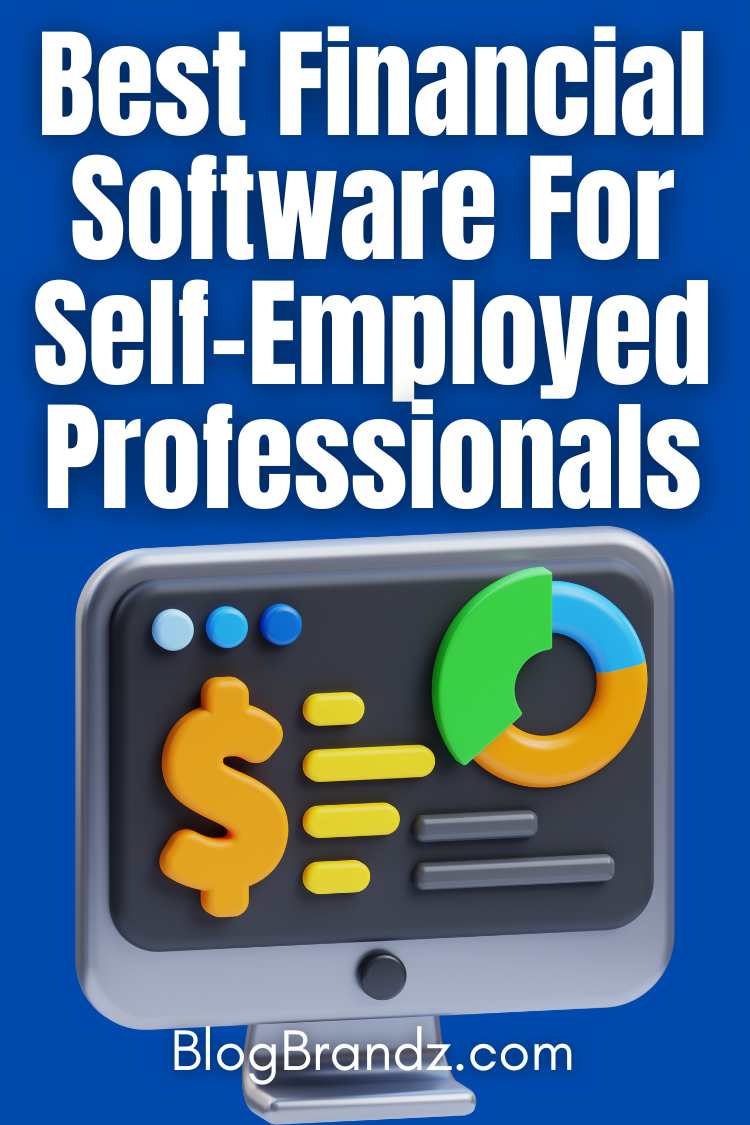Navigate the challenges of the freelance lifestyle with practical, actionable tips on financial planning and personal finance for freelancers and solopreneurs.
In the world of freelance and solopreneurship, the pursuit of financial success is a journey marked by both freedom and responsibility.
Navigating the unique financial currents that come with being a freelancer requires a tailored approach—one that goes beyond traditional financial advice.
It is possible to become a freelancer without investment and offer one’s services independently without significant upfront financial costs.
However, learning about money management for freelancers can play a crucial role in sustaining and growing your freelance business.
In this article, we delve into the intricacies of managing finances in a world where income ebbs and flows, independence reigns, and strategic financial decisions shape the path to prosperity.
Uncover the indispensable insights, savvy strategies, and expert advice crafted to empower freelancers and solopreneurs in mastering their financial destinies.
Disclaimer: The financial information provided is for general guidance. Consult with a financial advisor for personalized advice tailored to your specific situation.
Click here to get the 100 Tasks Solopreneur System
Contents
- Personal Finance for Freelancers & Solopreneurs
- #1. Creating a Freelancer Budget
- #2. Tax Planning for Freelancers
- #3. Emergency Funds for Freelancers
- #4. Retirement Planning for Freelancers
- #5. Negotiating Freelance Rates
- #6. Cash Flow Management
- #7. Invoice and Payment Management
- #8. Financial Tools for Freelancers
- #9. Insurance for Freelancers
- #10. Investing for Freelancers
- #11. Building Credit as a Freelancer
- #12. Professional Development Budget
- Freelancing Tips & Tools
Personal Finance for Freelancers & Solopreneurs
Whether you’re a seasoned freelancer or just embarking on your solo venture, this comprehensive guide is your compass through the realm of personal finance, designed to help you thrive in the world of self-employment.
#1. Creating a Freelancer Budget
Setting up a budget as a freelancer requires a strategic approach to navigate the ebb and flow of income. Begin by categorizing expenses into key areas: taxes, savings, and business costs.
Allocate a fixed percentage of each payment received to these categories to ensure financial stability. For taxes, set aside a predetermined amount to cover self-employment taxes and quarterly tax payments.
Building a robust savings category is crucial for those inevitable lean months or unexpected expenses. Aim for at least 20 percent of your income to go into savings, creating a financial safety net.
When it comes to business expenses, distinguish between fixed and variable costs. Fixed costs, such as subscriptions or software licenses, remain constant, while variable costs, like project-specific materials, fluctuate.
Allocate a percentage of your income to cover these expenses, ensuring you can meet both regular commitments and project-related needs. Regularly reassess and adjust your budget based on evolving financial patterns.
If you notice an increase in income, consider redistributing the surplus to savings or investing in professional development opportunities. Conversely, during slower periods, adjust your budget by reducing non-essential expenses.
This adaptive budgeting approach ensures financial resilience and empowers freelancers to weather the uncertainties of their income streams successfully.
Resources:
- Learn How To Budget – Personal Budgeting Made Easy
- The Complete Personal Finance Course
- Complete Practical Guide To Personal Finance For Beginners
- Personal Finance Masterclass – Easy Guide to Better Finances
- Personal Finance: A Rewarding Money Management System
#2. Tax Planning for Freelancers
Navigating self-employment taxes and deductions is critical for freelancers to maximize their income and remain tax-compliant.
Begin by understanding the nuances of self-employment taxes, which include both the employer and employee portions of Social Security and Medicare taxes. Calculate and set aside a percentage of income for these taxes, ensuring compliance with tax obligations.
Track deductible expenses meticulously to reduce taxable income. Common deductions for freelancers include home office expenses, professional development costs, and business-related travel.
Use accounting software or apps to organize and categorize expenses efficiently. From managing your finances to bookkeeping, taxes, and invoicing, Found’s automated tax-saving feature ensures you’re always well-prepared when tax season arrives.
From generating reports and sending invoices to storing receipts and paying taxes, you can accomplish it all within the app. The Found Mastercard ®️ Debit card effortlessly monitors and organizes your expenses, contributing to potential tax savings.
Don’t forget to maintain clear and detailed records, including receipts and invoices, to substantiate deductions during tax filing. Explore available tax credits that may apply to your freelance business.
Research credits such as the Earned Income Tax Credit (EITC) or Small Business Health Care Tax Credit to potentially lower your overall tax liability.
Considering the complexity of tax regulations, consulting a tax professional is advisable. A tax professional can provide personalized advice, identify additional deductions, and help optimize your tax strategy.
Their expertise ensures that you fulfill your tax obligations effectively while taking advantage of every available deduction, ultimately maximizing your financial well-being as a freelancer.
Regular consultations with a tax professional can keep you informed about changing tax laws and help you adapt your strategy accordingly.
Resources:
- Hire Accounting & Bookkeeping Professionals
- Hire a Freelance Tax Consultant
- Tax Strategy: Financial Planning for Beginners
- Intuit Academy Bookkeeping Professional Certificate
#3. Emergency Funds for Freelancers
Understand the importance of having an emergency fund as a freelancer and how to build one so you can manage finances during slow periods or unexpected events.
Prioritize building a robust emergency fund, providing a financial cushion during lean periods or unexpected challenges. Aim for 3 to 6 months’ worth of living expenses to enhance financial resilience.
Establishing and maintaining an emergency fund is a cornerstone of financial stability for freelancers. This fund serves as a safety net during slow periods or unexpected events, providing a crucial financial cushion.
The primary goal is to accumulate 3 to 6 months’ worth of living expenses, offering a buffer that allows freelancers to weather financial storms without compromising their well-being.
To build an effective emergency fund:
- Set a Target: Determine your monthly living expenses, including rent or mortgage, utilities, groceries, insurance, and other essential costs. Aim to save at least three to six times this amount.
- Consistent Contributions: Allocate a portion of your income specifically for the emergency fund. Consistent contributions, even if modest, add up over time.
- Automate Savings: Set up automatic transfers to your emergency fund. This ensures that saving becomes a non-negotiable part of your financial routine.
- Prioritize Fund Replenishment: If you dip into the emergency fund, make it a priority to replenish it as soon as possible. This maintains the fund’s effectiveness for future unforeseen circumstances.
- Separate Accounts: Keep your emergency fund in a separate account from your regular spending or business accounts. This separation helps prevent impulsive spending and ensures the fund is reserved for genuine emergencies.
- Adjust for Freelance Income: Freelancers with variable income should base their emergency fund on the lower end of their typical monthly income to account for lean periods.
During slow periods or unexpected events:
- Prioritize Essentials: Trim non-essential expenses during slow periods to conserve funds for critical needs.
- Communication with Creditors: If facing financial difficulties, communicate with creditors early to explore possible adjustments to payment plans or terms.
- Utilize Emergency Fund Wisely: Tap into the emergency fund judiciously and only for genuine emergencies. Evaluate alternative solutions before using the fund.
- Diversify Income Streams: Actively seek to diversify your income streams to reduce dependence on a single source, making your finances more resilient in the face of uncertainties.
A well-managed emergency fund provides peace of mind and financial security, allowing freelancers to navigate the unpredictable nature of their income with confidence.
#4. Retirement Planning for Freelancers
Freelancers must proactively plan for retirement, and there are specific retirement savings options tailored to their needs. Individual Retirement Accounts (IRAs) and Solo 401(k)s are popular choices:
IRAs (Individual Retirement Accounts):
- Traditional IRA: Contributions are tax-deductible, and earnings grow tax-deferred until withdrawal. Ideal if you expect to be in a lower tax bracket during retirement.
- Roth IRA: Contributions are made after taxes, but qualified withdrawals, including earnings, are tax-free. Suitable for those anticipating higher tax rates in retirement.
Solo 401(k) (Individual 401(k) or Self-Employed 401(k)):
- Allows both employer and employee contributions, providing a higher contribution limit compared to IRAs.
- Option for a traditional or Roth Solo 401(k), similar to the IRA counterparts.
SEP IRA For Freelancers:
A SEP IRA, or Simplified Employee Pension Individual Retirement Account, is a retirement savings plan designed for self-employed individuals and small business owners, including freelancers.
It provides a tax-advantaged way for freelancers to save for their retirement. Here are the key features of a SEP IRA for freelancers:
- Easy to Establish: Setting up a SEP IRA is relatively simple. Freelancers can establish an account with a financial institution, such as a bank or brokerage firm.
- Contributions: Contributions to a SEP IRA are made by the employer (freelancer) rather than the employee. Freelancers can contribute up to 25% of their net earnings, with a maximum limit (as of my knowledge cutoff in 2022) of $61,000 (subject to annual adjustments).
- Tax Deductible Contributions: Contributions made to a SEP IRA are tax-deductible, providing freelancers with a valuable tax advantage. This can lower their taxable income for the year.
- Flexibility: The contribution amount is flexible, allowing freelancers to adjust contributions each year based on their income. In leaner years, they can contribute less, while in more prosperous years, they can contribute more, within the IRS limits.
- No Annual Funding Requirement: While contributions are flexible, freelancers are not obligated to make annual contributions. This provides financial flexibility, especially during periods of variable income.
- Employer Contributions for Employees: If a freelancer has employees, they are also eligible to receive employer contributions to their individual SEP IRAs. The employer contribution percentage must be the same for all eligible employees.
- Tax-Deferred Growth: Similar to other IRAs, earnings within a SEP IRA grow tax-deferred until withdrawal. Withdrawals are taxed as ordinary income, and a penalty may apply for withdrawals before the age of 59½.
SEP IRAs offer freelancers a powerful tool for retirement savings, combining simplicity, flexibility, and tax advantages. However, freelancers need to consult with a financial advisor to ensure that a SEP IRA is the most suitable retirement savings option for their specific circumstances.
Calculating Retirement Savings:
Determining how much to save for retirement involves a personalized approach:
- Estimate Retirement Expenses: Consider your expected living expenses during retirement, factoring in housing, healthcare, and lifestyle choices.
- Assess Income Sources: Project potential income sources in retirement, such as Social Security or rental income.
- Calculate the Gap: Subtract anticipated income sources from estimated expenses to identify the retirement savings gap.
- Determine Contribution Amounts: Aim to contribute consistently to retirement accounts. The IRS sets contribution limits annually, so be aware of these and strive to maximize contributions.
- Consider Growth: Understand the potential growth of your investments over time. Historical market averages can provide a rough estimate, but remember that past performance is not indicative of future results.
- Review Periodically: Regularly reassess your retirement savings goals as circumstances change, such as income fluctuations, lifestyle adjustments, or market conditions.
Consistent contributions, even in modest amounts, can significantly impact retirement security. Take advantage of employer-sponsored plans, like a Solo 401(k), and individual retirement accounts to diversify your retirement savings portfolio.
Consulting with a personal finance and wealth management professional can provide personalized insights, helping freelancers make informed decisions to secure a comfortable retirement.
Resources:
- Ultimate Retirement: Build Your Dynamic Retirement Plan
- Retirement Planning Bootcamp Course
- Individual Retirement Accounts (IRAs) & Taxes
- Self-Directed Solo 401(k) – Explained
- The Step-By-Step Guide to Your 401k Plan
- Stock Market Investing Strategies for a Wealthy Retirement
- How to Build a Massive Retirement Plan from Scratch
#5. Negotiating Freelance Rates
Setting fair rates as a freelancer involves a combination of understanding your value, considering market dynamics, and effectively negotiating with clients. Here are tips for setting fair rates and negotiating higher pay:
Setting Fair Rates:
- Self-Assessment: Evaluate your skills, experience, and the unique value you bring to clients. Consider how your expertise sets you apart from competitors.
- Market Research: Research industry standards and market demand for your services. Understand the pricing range for similar services in your niche and location.
- Consider Expenses: Factor in your business expenses, taxes, and the time required to complete a project when determining your rates. Ensure that your rates cover both direct and indirect costs.
- Value-Based Pricing: Instead of solely basing rates on time, consider pricing based on the value you deliver to clients. Highlight the impact of your work on their business and the results they can expect.
- Packages and Bundles: Offer different service packages or bundled options to cater to a variety of client needs. This provides transparency and flexibility in pricing.
Negotiating Higher Pay:
- Research Client Budgets: Understand your client’s budget constraints and expectations before entering negotiations. This knowledge empowers you to propose rates within a realistic range.
- Emphasize Value: Communicate the value you bring to the table. Demonstrate how your skills and experience contribute to achieving the client’s goals and solving their challenges.
- Know Your Bottom Line: Determine the minimum acceptable rate for a project based on your financial needs. Be prepared to walk away if the client cannot meet this baseline.
- Present Data and Achievements: Showcase your past achievements and successful projects to reinforce your value proposition. Use data and metrics whenever possible to substantiate your claims.
- Negotiate Beyond Money: If the client is unable to meet your desired rate, negotiate other terms such as project scope, timelines, or additional benefits that contribute to your overall compensation.
- Build Long-Term Relationships: Emphasize the importance of a mutually beneficial, long-term relationship. Clients often appreciate freelancers who are invested in their success and are more willing to pay fair rates for quality work.
- Be Confident and Professional: Approach negotiations with confidence, professionalism, and a positive attitude. Clearly articulate your points and be open to compromise where necessary.
Remember that effective negotiation skills improve with practice. By developing a strategic approach that considers market benchmarks, your expertise, and the value you provide, you can build lasting, mutually beneficial relationships with clients while securing fair compensation for your freelancing services.
Resources:
- Chris Voss MasterClass on the Art of Negotiation
- Pitching Yourself: The Complete Course to Help You Pitch
- Successful Negotiation: Essential Strategies and Skills
- Upwork Proposal Mastery: The Complete Guide to Proposal Writing
- Marketing For Freelancers: Get Clients with No Budget
#6. Cash Flow Management
Managing cash flow effectively is crucial for freelancers, especially those with variable income. Creating a cash flow management system involves planning for both high and low-income months.
Here are tips to establish a resilient cash flow strategy:
Cash Flow Management System:
- Track Income and Expenses: Maintain a detailed record of your income and expenses. Use accounting software or financial apps to categorize and monitor transactions regularly.
- Calculate Average Monthly Income: Determine your average monthly income by analyzing past earnings. This provides a baseline for budgeting.
- Identify Fixed and Variable Expenses: Differentiate between fixed (consistent) and variable (fluctuating) expenses. Fixed expenses include rent, utilities, and subscriptions, while variable expenses may include project-specific costs.
- Emergency Fund: As mentioned earlier, establish and maintain an emergency fund. This fund acts as a buffer during low-income months, covering essential expenses.
- Proactive Invoicing: Invoice clients promptly and follow up on payments. Encourage clients to adhere to agreed-upon payment terms to maintain a steady cash flow.
Budgeting for High and Low-Income Months:
- Calculate Minimum Monthly Budget: Determine the minimum amount needed to cover essential expenses during low-income months. This includes necessities like rent, utilities, and groceries.
- Set Variable Expense Limits: Allocate a portion of your budget for variable expenses, adjusting this amount based on the variability of your income.
- Prioritize High-Income Month Goals: During high-income months, set specific financial goals. This could include boosting savings, investing in professional development, or paying down debt.
- Percentage-Based Savings: Allocate a percentage of your income during high-earning months to a separate savings account. This serves as a reserve to cover expenses during lean periods.
- Review and Adjust Regularly: Regularly review and adjust your budget based on evolving financial patterns. This ensures that your budget remains flexible and adaptable to changes in income.
- Diversify Income Streams: Explore opportunities to diversify your income streams. This could involve taking on new projects, offering additional services, or seeking alternative revenue sources.
- Negotiate Payment Terms: Negotiate favorable payment terms with clients, such as partial upfront payments or milestone-based payments. This can help stabilize your cash flow.
- Limit Non-Essential Spending: Exercise financial discipline by limiting non-essential spending during high-income months. This allows you to allocate more funds to savings and emergency reserves.
By implementing a cash flow management system and budgeting for both high and low-income months, freelancers can cultivate financial resilience.
This proactive approach ensures that financial needs are met during periods of variability, reducing stress and promoting long-term financial stability.
Resources:
- Understanding Cash Flow Management
- “Cash Conversion Cycle” for Cash Flow Management
- Cash Management & Cash Flow Projection
- Preparing & Understanding a Cash Flow Statement
- Solve Your Cash Flow Problems with a Proven 6-Step Blueprint
#7. Invoice and Payment Management
Invoicing is a crucial aspect of freelancing, and adopting best practices for prompt and efficient invoicing can positively impact your cash flow. Additionally, dealing with late payments requires a proactive approach.
Here are some best practices:
Prompt and Efficient Invoicing:
- Use Professional Invoicing Software: Invest in professional invoicing tools that streamline the invoicing process. Tools like Fiverr’s Workspace Tool can automate tasks and provide a polished, consistent look.
- Clearly Outline Payment Terms: Specify payment terms on your invoices, including the due date and any late fees. Use language that is easy to understand, and ensure clients are aware of the terms before starting a project.
- Include Detailed Information: List the services provided, itemized costs, and any additional expenses on your invoices. This helps avoid misunderstandings and provides transparency.
- Send Invoices Promptly: Invoice clients as soon as a project is completed or as per the agreed-upon schedule. Prompt invoicing contributes to quicker payment turnaround.
- Consider Partial Payments: For larger projects, consider requesting partial payments or milestone payments. This approach ensures a steady cash flow throughout the project.
- Offer Multiple Payment Options: Provide clients with various payment options, such as credit cards, bank transfers, or online payment platforms, to make it convenient for them to settle invoices promptly.
- Automate Recurring Invoices: If you have ongoing projects with regular billing cycles, set up automated recurring invoices. This reduces manual effort and helps maintain consistency.
Dealing with Late Payments:
- Follow Up Promptly: If a payment becomes overdue, send a polite but firm follow-up email or message. Politely remind clients of the payment terms and inquire about the status of the payment.
- Implement Late Fees: Clearly state late fees in your payment terms and be consistent in applying them. This encourages clients to adhere to payment deadlines.
- Personalize Communications: Address late payments professionally and personally. Understand that clients may face challenges, and a personalized approach can maintain a positive working relationship.
- Phone Follow-ups: If emails go unanswered, consider making a polite phone call to discuss the overdue payment. A direct conversation may expedite the resolution.
- Offer Payment Plans: In cases where clients are facing financial challenges, consider offering flexible payment plans. This demonstrates understanding while ensuring you receive compensation over time.
- Escalate if Necessary: If all else fails, be prepared to escalate the matter legally or through a collections agency. Communicate your intentions to the client before taking such steps.
- Evaluate Client Relationships: Consider the overall history and relationship with the client. If late payments become a chronic issue, reevaluate whether continuing the partnership is in your best interest.
Implementing efficient invoicing processes, leveraging technology, and maintaining clear communication can significantly improve the invoicing and payment collection process for freelancers.
Found’s automated tax-saving feature handles everything from financial management and bookkeeping to taxes and invoicing, allowing you to effortlessly generate reports, send invoices, store receipts, and make tax payments from the app.
Protect your financial and legal interests as a freelancer with the Independent Contractor Contract Template. This lawyer-approved written agreement ensures timely payments, and intellectual property rights, and shields both freelancers and clients from potential legal issues.
If you want to make sure you’re paid on time, have your client sign this Independent Contractor Contract Template. It will help you ensure that all your financial and legal interests are fully protected as a freelancer.
These practices contribute to a professional and organized financial system while helping to ensure timely payments.
Resources:
- Found Banking Tools for the Self-Employed
- Fiverr’s Workspace Tool for Freelancers
- Independent Contractor Contract Template
#8. Financial Tools for Freelancers
Accounting software and budgeting apps are valuable tools for freelancers, providing streamlined solutions to manage finances efficiently. Here’s an overview of these technologies and their benefits:
Accounting Software:
- Found Business Banking Tools: From managing your finances to bookkeeping, taxes, and invoicing, Found’s automated tax-saving feature ensures you’re always well-prepared when tax season arrives.
- QuickBooks: Widely used accounting software with features for invoicing, expense tracking, and financial reporting. Supports integration with bank accounts and other financial tools for automatic data synchronization.
- FreshBooks: Designed specifically for freelancers and small businesses. Offers features like time tracking, invoicing, and expense management.
- Wave: A free accounting platform suitable for freelancers and small businesses. Provides tools for invoicing, accounting, and receipt scanning.
- Xero: Cloud-based accounting software with features for invoicing, expense tracking, and bank reconciliation. Allows collaboration with accountants and financial advisors.
- Zoho Books: Comprehensive accounting software with modules for invoicing, expense tracking, and inventory management. Integration capabilities with other Zoho business apps.
Budgeting Apps:
- YNAB (You Need A Budget): Focuses on zero-based budgeting, where every dollar is assigned a purpose. Offers real-time tracking of expenses and helps users prioritize financial goals.
- Mint: Aggregates financial information from various accounts to provide an overall view of spending and income. Categorizes transactions and provides budgeting insights.
- PocketGuard: Helps users track spending, set budget goals, and identify potential savings. Provides alerts for unusual spending patterns.
- GoodBudget: Enforces the envelope budgeting system, allowing users to allocate funds to specific categories. Supports collaborative budgeting for families or teams.
- Personal Capital: Offers a comprehensive financial dashboard that includes budgeting, investment tracking, and retirement planning. Provides insights into net worth and investment performance.
Using Technology to Streamline Financial Processes:
- Automation of Invoicing: Set up recurring invoices and automate invoice delivery to clients. This ensures timely billing and payment reminders.
- Expense Tracking: Use mobile apps to capture receipts on the go and automatically categorize expenses. This minimizes manual data entry and reduces the chance of overlooking deductible expenses.
- Bank Integration: Connect accounting software to bank accounts for seamless transaction reconciliation. This helps maintain accurate financial records without manual data input.
- Cloud Storage: Store financial documents securely in the cloud for easy access and collaboration. Cloud storage also ensures data backup and protection.
- Financial Reporting: Utilize software-generated reports for insights into income, expenses, and overall financial health. These reports aid in strategic decision-making and tax preparation.
- Collaboration with Professionals: Use collaboration features to share financial data with accountants or financial advisors securely. This facilitates real-time collaboration and enhances financial management.
- Security Measures: Implement multi-factor authentication and encryption features to secure financial data. Regularly update software to benefit from the latest security patches.
Embracing accounting software and budgeting apps streamlines financial processes for freelancers, enhancing efficiency and accuracy in managing income, expenses, and overall financial health.
These tools contribute to a more organized and technology-driven approach to freelance financial management.
#9. Insurance for Freelancers
For freelancers, navigating health insurance options and understanding the need for liability insurance is crucial to safeguarding both personal and business interests.
Here’s a breakdown of considerations for health and liability insurance:
Health Insurance for Freelancers:
- Health Insurance Marketplace: Explore options available through the Health Insurance Marketplace (in the U.S.), where you can compare different plans and choose coverage that suits your needs.
- COBRA Coverage: If you recently left a job with employer-sponsored health insurance, you may be eligible for COBRA continuation coverage, allowing you to keep your previous insurance for a limited time.
- Health Savings Accounts (HSAs) and Flexible Spending Accounts (FSAs): Consider plans that allow you to contribute to an HSA or FSA. These accounts can help you save money on eligible medical expenses with pre-tax dollars.
Professional Organizations and Freelancer Unions:
Some professional organizations or freelancer unions offer group health insurance plans. Investigate whether joining such groups provides access to more affordable health coverage.
- Private Health Insurance Plans: Research private health insurance plans offered by various providers. Compare premiums, deductibles, coverage options, and network accessibility to find the best fit.
- Short-Term Health Insurance: Short-term health insurance plans may be suitable for temporary coverage gaps. Be aware of limitations and exclusions in these plans.
- Affordability and Coverage: Assess your budget and health needs to strike a balance between affordability and coverage. Consider factors like premiums, deductibles, copayments, and prescription coverage.
Liability Insurance and Other Types of Coverage:
- General Liability Insurance: General liability insurance protects against bodily injury, property damage, and personal injury claims. It is essential for freelancers who interact with clients, work on-site, or provide services that may have associated risks.
- Professional Liability Insurance (Errors and Omissions Insurance): Professional liability insurance safeguards freelancers against claims of negligence or mistakes in their professional services. This is crucial for those offering consulting, advice, or specialized services.
- Cyber Liability Insurance: Freelancers handling sensitive client data should consider getting cyber liability insurance. This coverage protects against data breaches, cyberattacks, and the resulting financial losses.
- Business Owner’s Policy (BOP): A BOP combines general liability and property insurance, offering a comprehensive solution for freelancers who have both physical assets and liability risks.
- Workers’ Compensation Insurance: If you have employees, even if they are part-time or temporary, workers’ compensation insurance may be required. It covers medical expenses and lost wages for employees injured on the job.
- Business Interruption Insurance: Business interruption insurance provides financial assistance if your business operations are disrupted due to covered events, such as a natural disaster.
Consideration of Specific Risks:
Tailor your insurance coverage to your specific risks. For example, graphic designers might consider intellectual property insurance, while event planners might need event cancellation insurance.
Prioritize a comprehensive insurance strategy to mitigate potential risks and ensure the sustainability of your freelance venture.
When exploring health and liability insurance options, consult with insurance professionals to understand the specifics of each policy and how they align with your freelance business needs.
Resources:
#10. Investing for Freelancers
Understanding and navigating the world of investments is a pivotal aspect of securing a sustainable financial future. Balancing short-term needs with long-term financial goals requires a nuanced approach that accommodates the inherent variability of freelance income.
To embark on this financial journey with confidence, freelancers should prioritize diversification in their investment strategies. This involves carefully considering both immediate financial necessities and future aspirations.
For short-term needs, maintaining a liquid emergency fund is paramount. This fund acts as a financial cushion during lean months or unforeseen circumstances, ensuring that day-to-day expenses and business operations remain uninterrupted.
Simultaneously, freelancers should actively explore investment options tailored to long-term wealth-building. This might involve contributing to retirement accounts, such as an IRA or Solo 401k, or engaging in low-risk investments that align with individual risk tolerance.
Researching and selecting investments that match financial objectives is crucial. Whether it’s real estate, stocks, bonds, or a combination, understanding the risk and potential returns is key.
Diversifying the investment portfolio helps mitigate risk and optimize returns over time. Learn about safe-haven assets or investments that thrive in times of uncertainty and find out how to add them to your portfolio for financial security.
Regularly reassessing and adjusting the investment strategy in response to changing financial circumstances and market conditions ensures a dynamic and responsive approach to wealth accumulation for freelancers.
Don’t hesitate to hire a personal finance and wealth management professional to help you manage your personal budget and investments.
In essence, the path to financial success lies in a balanced and informed investment strategy that harmonizes the immediate needs of freelancers with their long-term aspirations.
Resources:
- Mastering The Markets Series with Ray Dalio & Wall Street Titans
- Robert Reffkin MasterClass on Buying & Selling Real Estate
- Stock Market Investing Strategies for a Wealthy Retirement
- 10 Investments That Can Help You Outperform Inflation
- What Are Safe-Haven Assets and How to Invest in Them?
- Creative Investments: Diversifying Your Portfolio Beyond Traditional Assets
#11. Building Credit as a Freelancer
Establishing and maintaining good credit is essential for freelancers, influencing their ability to secure loans, leases, or favorable terms with clients. Cultivating healthy credit habits contributes to financial stability and opens doors to future opportunities.
You may want to incorporate a business as a freelancer to enhance your freelancer business for simplified and empowered success.
Here are actionable tips for building and maintaining good credit:
Establishing Good Credit:
- Open a Credit Account: Begin by opening a credit account, such as a credit card. This provides a starting point for building a credit history.
- Pay Bills on Time: Consistently pay all bills on time, including credit card payments, utility bills, and loans. On-time payments are a fundamental factor in credit scoring.
- Keep Credit Utilization Low: Aim to use only a small percentage of your available credit. This demonstrates responsible credit management and positively impacts your credit score.
- Diversify Credit Types: Consider having a mix of credit types, such as credit cards, installment loans, and retail accounts. This diversity contributes positively to your credit profile.
- Regularly Check Your Credit Report: Obtain and review your credit report regularly to ensure accuracy. Dispute any inaccuracies promptly to maintain a clean credit history.
Maintaining Good Credit:
- Create a Budget: Establish a budget to manage your finances effectively. Knowing your financial limits and priorities helps in making responsible credit decisions.
- Emergency Fund: Maintain an emergency fund to cover unexpected expenses. Relying on credit for emergencies can lead to debt accumulation, impacting your creditworthiness.
- Avoid Opening Unnecessary Credit Accounts: While having a mix of credit is beneficial, avoid opening accounts you don’t need. Each credit inquiry can have a temporary impact on your credit score.
- Pay More than the Minimum: If you carry a balance on your credit cards, aim to pay more than the minimum amount due. This helps reduce interest charges and demonstrates responsible credit management.
Strategically Use Credit for Business Needs:
- Separate Personal and Business Expenses: Maintain separate accounts for personal and business expenses to avoid mingling finances.
- Use Credit for Growth: Leverage credit strategically for business expansion, such as investing in equipment or marketing. Ensure that the returns justify the credit usage.
- Monitor Your Credit Score: Stay vigilant about your credit score. Many credit card companies provide free access to credit scores. Regular monitoring allows you to track changes and address potential issues promptly.
- Seek Professional Advice: If needed, consult with financial advisors or credit counseling services for personalized advice on improving and maintaining good credit.
By consistently cultivating good credit habits, freelancers can enhance their financial credibility and create a solid foundation for both personal and business financial endeavors.
Responsible credit management not only ensures immediate financial health but also opens doors to future opportunities and favorable financial terms.
#12. Professional Development Budget
Investing in ongoing education and skill development is a strategic move that pays dividends for freelancers aiming to stay relevant and competitive in the dynamic landscape of their chosen fields.
Allocating funds for continuous learning is not merely an expense but a wise investment in personal and professional growth. Here are actionable tips to enhance freelancing capabilities:
- Create a Professional Development Budget: Allocate a portion of your income specifically for ongoing education and skill development. Treating this as a non-negotiable expense reflects a commitment to personal and professional advancement.
- Identify Relevant Courses and Workshops: Stay attuned to industry trends and identify courses or workshops that align with your career goals. Prioritize those that enhance your existing skills or introduce new, in-demand capabilities.
- Invest in High-Quality Resources: Consider investing in premium courses, books, or tools that offer in-depth knowledge and insights. Quality resources often provide a more comprehensive and valuable learning experience.
- Attend Conferences and Networking Events: Set aside funds for attending industry conferences and networking events. These not only provide valuable knowledge but also offer opportunities to connect with peers, mentors, and potential clients.
- Online Learning Platforms: Explore reputable online learning platforms that offer a wide range of courses. Platforms like Udemy, Coursera, and LinkedIn Learning provide flexibility and diverse learning options.
- Join Professional Memberships: Invest in memberships with professional organizations related to your field. Many associations offer exclusive access to educational resources, webinars, and networking opportunities.
- Hire a Mentor or Coach: Consider allocating funds for hiring a mentor or coach who can provide personalized guidance and insights. A mentor can accelerate your learning curve and offer valuable advice based on their experience.
- Continuous Industry Research: Set aside time and resources for continuous industry research. Subscribe to relevant publications, blogs, and newsletters to stay informed about the latest trends, technologies, and best practices.
- Participate in Skill Exchanges: Collaborate with other freelancers or professionals for skill exchanges. This not only expands your skill set but also fosters a sense of community and collaboration.
- Feedback and Iteration: Allocate resources for obtaining feedback on your work and iterating based on the insights gained. Constructive feedback is a powerful tool for improvement and growth.
Investing in continuous learning is an investment in yourself and your freelance business. By proactively allocating funds for ongoing education, freelancers can enhance their skills and position themselves as valuable assets in the competitive marketplace.
This commitment to growth benefits the individual freelancer or solopreneur and contributes to the overall advancement of the freelancing community.
These topics cover a range of financial aspects that freelancers may encounter. Tailor the information to your specific needs and circumstances, and always consider seeking advice from financial professionals when necessary.
Freelancing Tips & Tools
- The 100 Tasks Solopreneur System for Freelancers
- How to Build a Successful Freelancer Business
- How to Scale and Grow Your Solopreneur Business
- 8 Reasons to Incorporate a Business as a Freelancer
- 10 Tips to Safeguard Your Privacy as a Freelancer
- How To Build a Professional Freelance Resume
- 15 Most In-Demand Freelance Skills to Learn
- Personal Branding for Freelancers: How to Build a Freelancer Brand
- Remote Work Best Practices for Freelancers & Independent Contractors
- How to Start Creating an Online Presence for Your Business
- Learn Freelance Writing with the Best Freelance Writing Classes
- 10 Ways to Get More Freelance Writing Gigs
Disclaimer: Found is a financial technology company, not a bank. Banking services are provided by Piermont Bank, Member FDIC. The Found Mastercard®️ debit card is issued by Piermont Bank pursuant to a license from Mastercard Inc. and may be used everywhere Mastercard debit cards are accepted.
© 2024, Priya Florence Shah. All rights reserved.
Priya Florence Shah is a bestselling author and an award-winning blogger. Check out Devi2Diva, her book on emotional self-care for women. In her spare time, Priya writes science-fiction novels and poetry and chills with her two-legged and four-legged kids.
Discover more from Business & Branding Tips
Subscribe to get the latest posts sent to your email.


